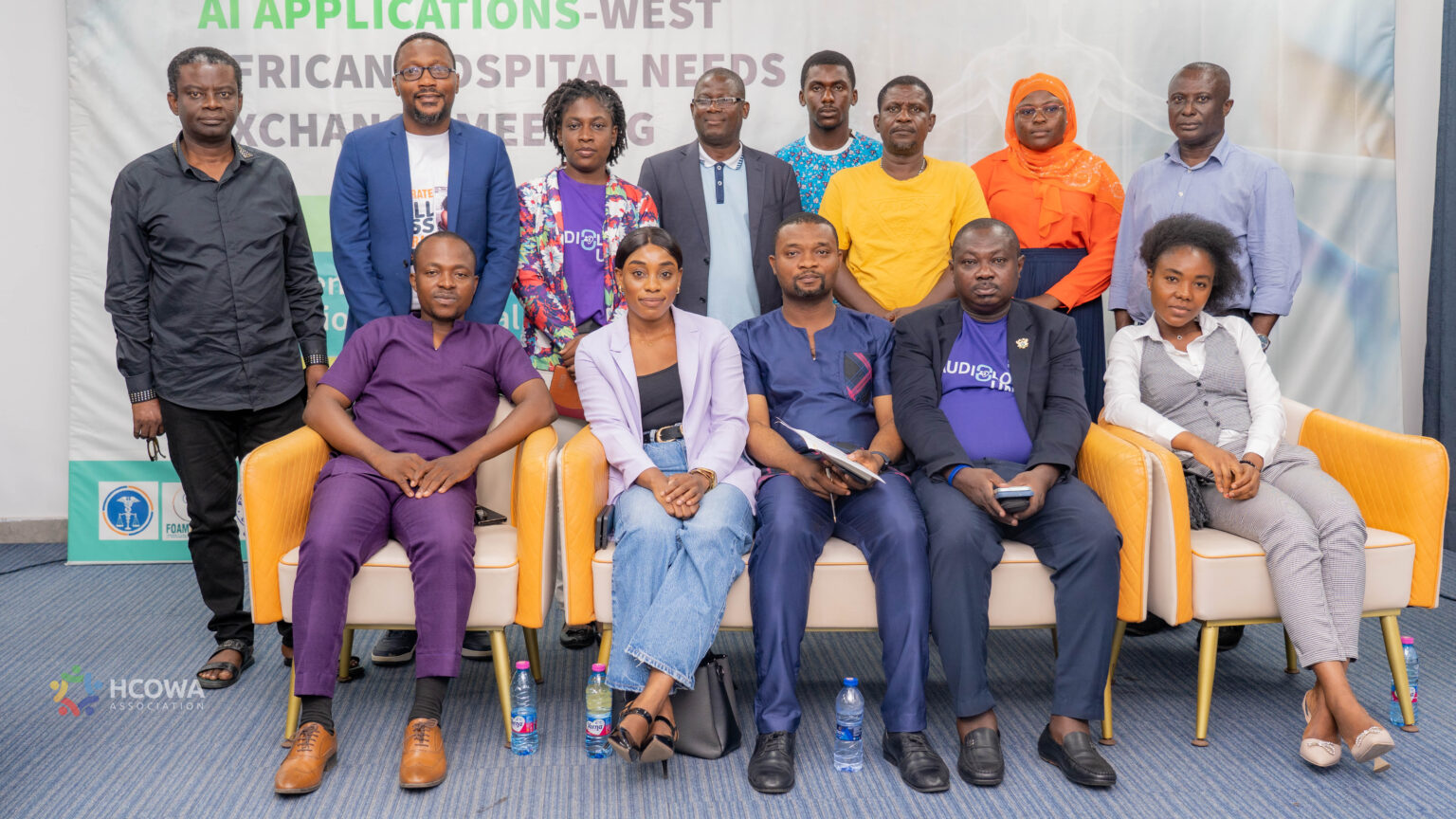The global healthcare landscape is undergoing significant transformation, and the Health Community of West Africa Association (HCOWAA) is at the forefront of this evolution. By harnessing the power of Artificial Intelligence (AI), the organization is spearheading initiatives that promise to revolutionize healthcare delivery in West Africa, particularly Ghana. A testament to this commitment is the successful organization of its 8th Symposium on AI APPLICATIONS- WEST AFRICAN HOSPITAL NEEDS EXCHANGE MEETING, themed “Strengthening Hospital Support and Regional Medical Supply Systems.”
During his welcome address, the Vice President of HCOWAA, Mr. Prince Opoku Dogbey outlined a plan to integrate AI in healthcare by making it a core department, incorporating systems like IVD, POCT, LIS, smart systems, big data analytics, and computational power centers. This integration aims to enhance diagnostic accuracy, speed up test results, and boost analytical capabilities. The organization, HCOWA, will focus on advanced components, enabling hospitals to leverage AI without shouldering the full resource burden.
“Our AI-powered medical imaging system integrates essential diagnostic tools like X-rays, ultrasounds, CT scans, and more. For hospitals and clinics that possess the necessary imaging equipment but lack sufficient medical staff or expertise, HCOWA provides an advanced solution. We deploy a centralized server where hospitals can upload their medical images for analysis. Experts from HCOWA, based in China, can then review and analyze these images, generating detailed reports that are shared with local healthcare providers. Additionally, using big data and smart systems, our Ghanaian doctors can automate the preparation and analysis of these images, ensuring faster and more accurate results. Mr. Opoku said.
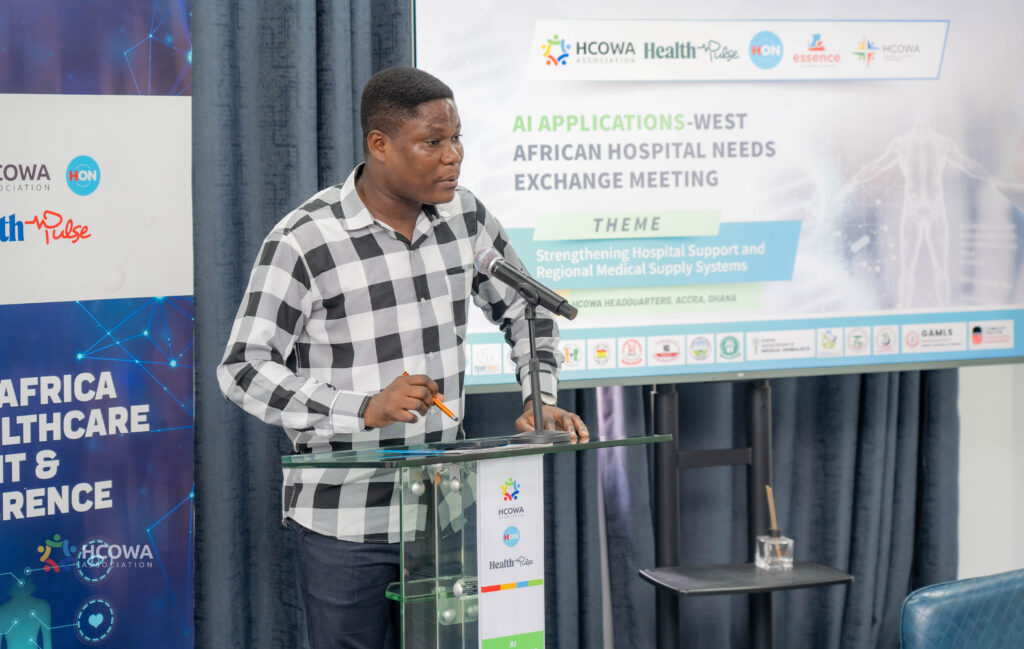
During a presentation by Mr. Yoshua Kodjovi Domedjui, the content manager of HCOWAA, he underlined that the Health Pulse Magazine is a weekly health publication dedicated to educating and informing the public on health issues, promoting healthy living, and supporting health professionals with research, serving as a bridge between health institutions, professionals, and communities. The magazine proposes a partnership with hospitals and medical institutions to provide verified health data updates and insights, aiming to amplify Ghana Health Service initiatives, educate the public with trustworthy information, and strengthen partnerships, with potential contributions including articles on national health policies, data-driven pieces on health statistics, and success stories from various regions and facilities.
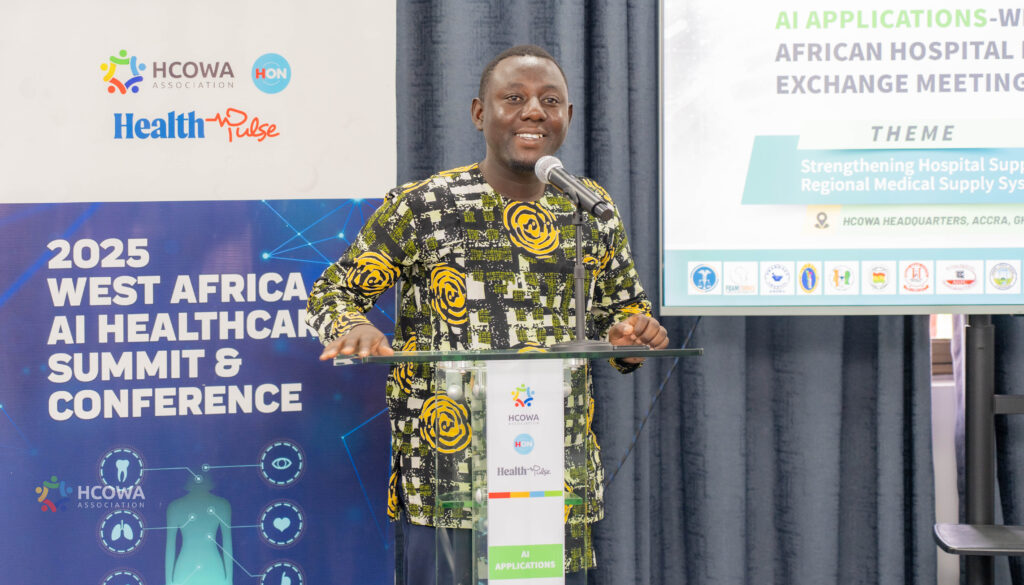
The manager of Essence Clinic and Medical Laboratory and the Director for Education and Training, HCOWA Academic and Exchange Committee, Mr. Benjamin Kwei Mensah highlighted that AI enhances, rather than replaces, the human touch in healthcare, enabling clinicians to make faster, more accurate, and compassionate decisions. He outlined key steps for building AI-ready hospitals, including investing in digital infrastructure, promoting local innovations, developing regional data-sharing frameworks, and ensuring ethical AI deployment that prioritizes patient privacy and equitable access
“This meeting is not just an exchange of needs. It is a call to action — to harness the full power of artificial intelligence to solve the practical problems that have hindered us for too long. Let us imagine a West Africa where hospitals are no longer reactive but proactive. Where our systems are not just functional, but intelligent. And where healthcare is not just accessible, but predictive, efficient, and resilient.” He stated.
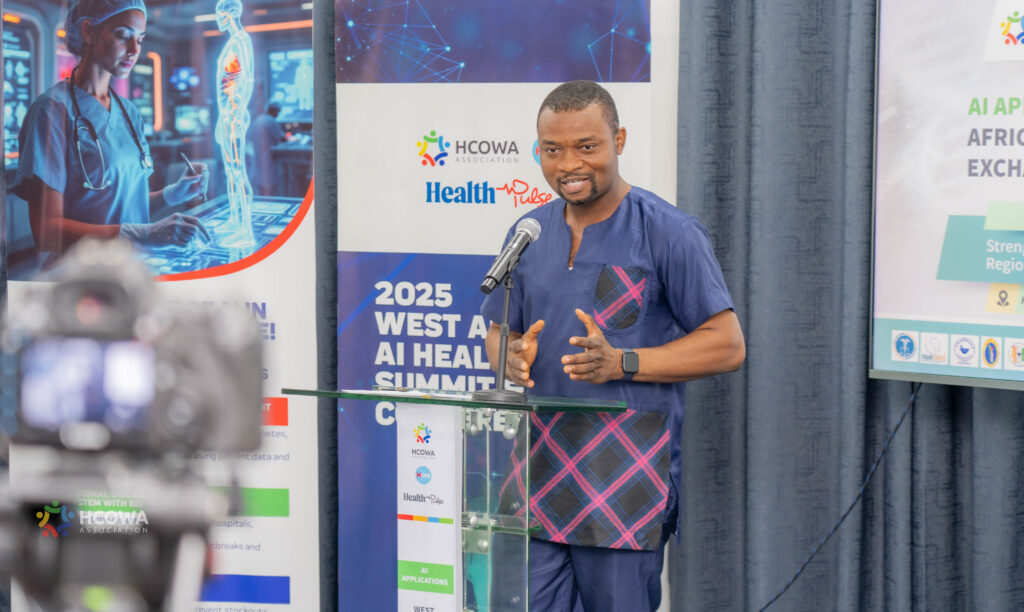
A regulatory officer with the Food and Drugs Authority (FDA) in Ghana, Mr. Samuel Yawson Ayikanle highlighted that AI-powered chatbots can facilitate real-time, personalized medical advice, provide basic consultations, health information, and guidance, while also bridging communication gaps through multilingual support, ultimately reducing the burden on healthcare professionals. Also, Health systems are increasingly overwhelmed by manual processes and paper-based records yet AI can automate health history tracking, manage patient data, and optimize workflows, enhancing operational efficiency and ensuring better resource allocation across healthcare facilities.
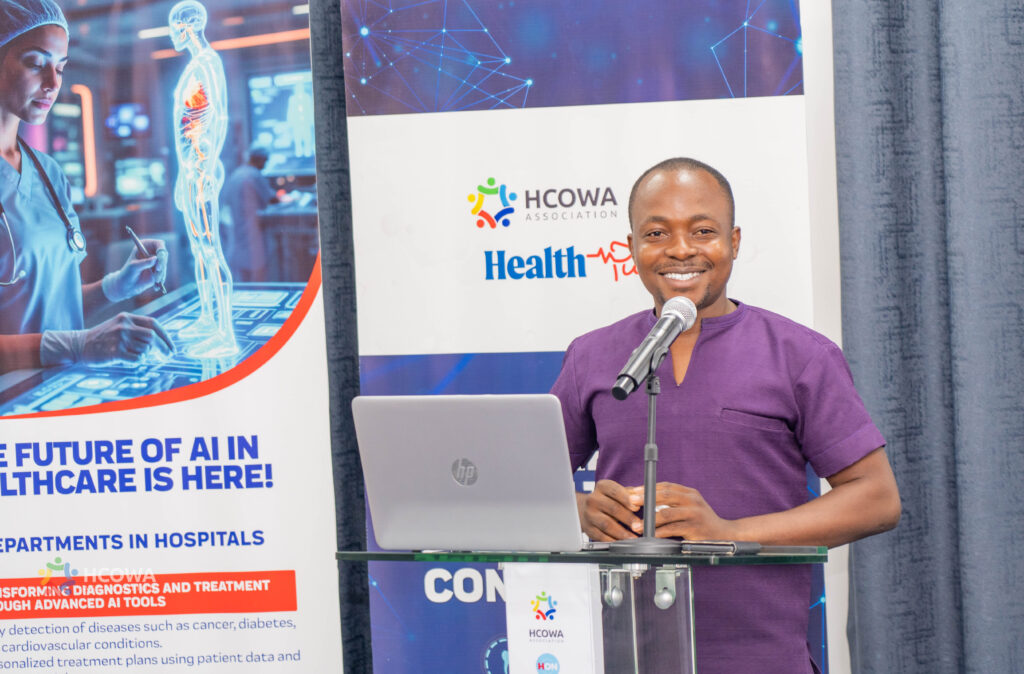
Paulina Denteh, the Director of HCOWAA Women Health, emphasized on the need for West Africa to leverage technology, including AI, to transform healthcare, enhancing patient care and access to information, rather than replacing the human touch, and urged collective action to build a better healthcare future for the region.
“At HCOWA Women Health, we’re already exploring these possibilities. We’re learning what works and what doesn’t. But we need you to join us. Whether you manage a hospital in Accra, or work in a rural health center in Walewale, there’s a role for you in this transformation. Every day we delay, patients continue to struggle with preventable problems. Every month we wait, we fall further behind regions that are already using these tools. But every step we take together brings us closer to healthcare that truly serves our people.” Doctor Paulina said.
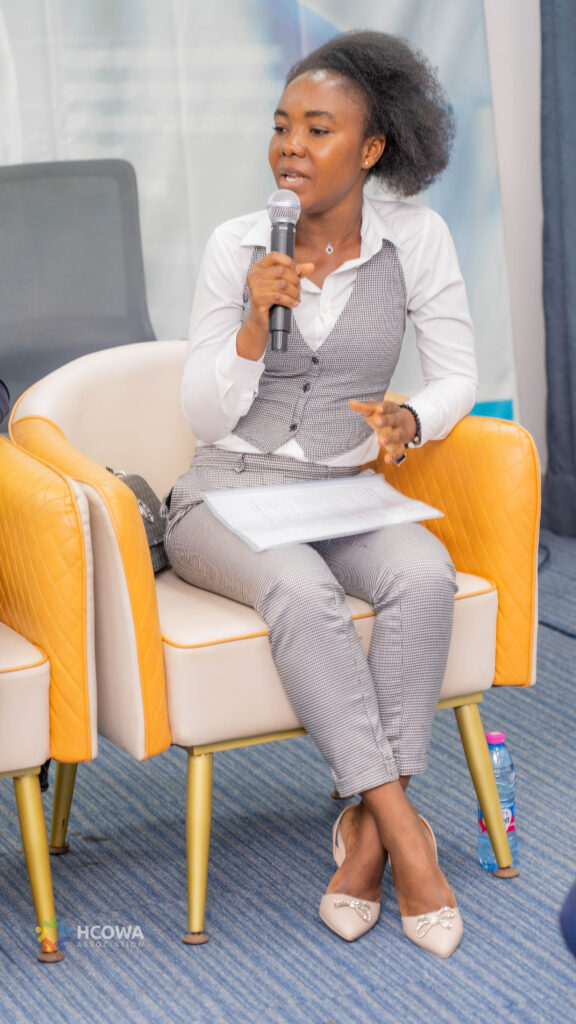
Michael Abeku Yankson emphasized that efforts should focus on strengthening procurement systems, supporting local drug manufacturing, and enhancing regulation to ensure quality and affordability, while also highlighting the importance of integrating emergency preparedness, expanding and modernizing hospital infrastructure, and ensuring reliable essential services to meet growing demand.
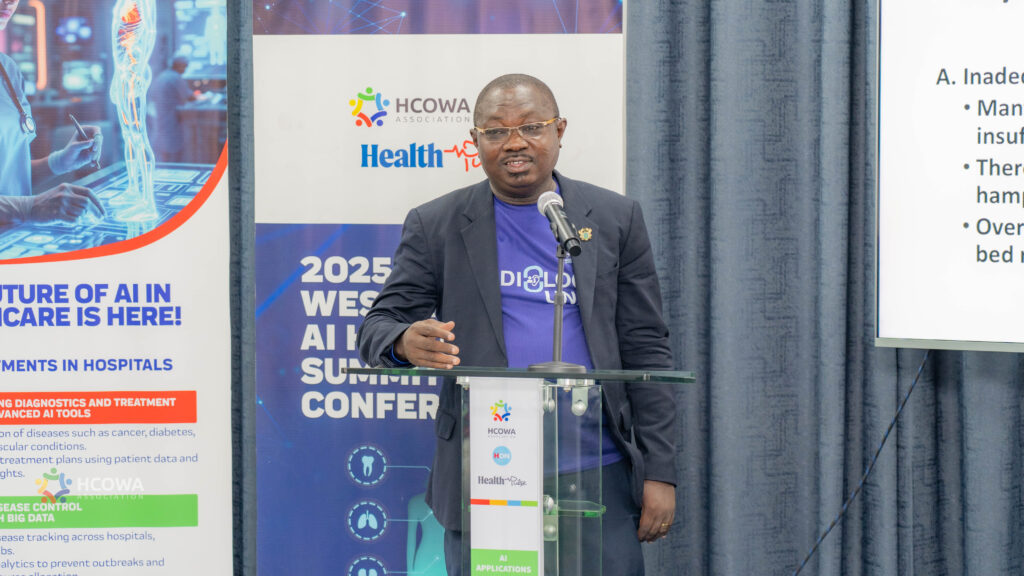
By leveraging AI, the Health Community of West Africa Association aims to bridge gaps, foster innovation, and drive sustainable healthcare solutions tailored to the unique needs of the region. Through such strategic endeavors, the organization is poised to make a lasting impact on the healthcare sector, improving outcomes and advancing the well-being of communities across the region.



